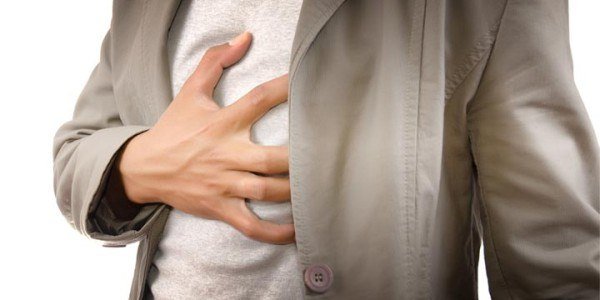Esophagitis

Esophagitis is an inflammation that causes damage to the tissues of the esophagus – the muscular tube through which food passes from the mouth to the stomach.
The disease often causes painful, difficult swallowing and chest pain.
The causes of its appearance are the entry of stomach acids into the esophagus, infection, oral medications and allergies.
The appropriate course of treatment is determined individually in each case according to the underlying cause and the extent of tissue damage.
If not treated, the disease can lead to a change in the structure of the esophagus, which will disrupt its function.
What are the symptoms?
• Difficulty swallowing /dysphagia/;
• Painful swallowing /odynophagia/;
• Pain in the chest, especially behind the sternum, which occurs with eating;
• Nausea;
• Vomiting;
• Abdominal pain;
• Cough;
• Decreased appetite;
In young children, especially 1-4 year olds who cannot explain their discomfort or pain, signs of inflammation of the esophagus can be:
• Difficult feeding;
• Even a slight delay in development is detected;
When to seek medical help?
Most clinical manifestations of inflammation of the esophagus can be caused by several different diseases affecting the digestive system.
See your doctor if the signs and symptoms:
• Last more than a few days;
• Do not improve or go away with over-the-counter antacids;
• Severe enough to make eating difficult;
• Are accompanied by flu-like symptoms, such as headache, fever and muscle aches;
Seek emergency medical attention if:
• Chest pain that lasts more than a few minutes after eating;
• You suspect that food is stuck in your esophagus;
• You have a history of heart disease and are experiencing pain;
What are the causes?
Esophagitis is usually classified according to the diseases that cause it.
In some cases, it may also be due to more than one clinical condition:
• Inflammation of the esophagus due to reflux – a valve structure called the lower esophageal sphincter normally protects the esophagus from acidic stomach contents.
If this valve opens when there is no food or liquid coming in, or does not close properly, stomach acids can enter the esophagus /gastroesophageal reflux/.
But when this reflux is constant or occurs frequently, the patient is diagnosed with gastroesophageal reflux disease. A complication of the disease is chronic inflammation and damage to the tissues of the esophagus.
• Eosinophilic esophagitis – eosinophils are white blood cells that regulate inflammatory processes and participate in allergic reactions.
This form of the disease occurs with a high concentration of white blood cells in the esophagus, most likely as a result of an allergic reaction due to the presence of an allergen.
Esophagitis Treatment
Depending on the cause of the inflammation of the esophagus you have, you can reduce recurring problems by following these steps:
• Avoid food allergens – read food labels carefully before consuming them, and when you have to eat in a restaurant or a restaurant, it is best to inquire about the content of the food, before you start consuming it;
• Avoid foods that make reflux disease worse – these are foods with high acidity such as alcohol, caffeine, citrus fruits, tomatoes and spicy foods.
Eat more often, but consume smaller amounts of food and don’t eat anything for at least 3 hours before going to bed;
• If you are overweight, you must consult a dietitian who will prepare a suitable diet for you, you should also start exercising;
• If you smoke, you should do everything possible to quit smoking.



